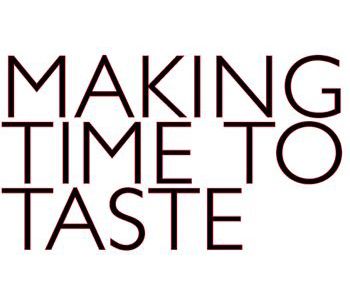Taste for Yourself!
A number of recent articles have been swimming around in my mind to develop into this one. The first was from a great new magazine called sommelier journal. If you are on-premise, I would recommend you take a look at it. The article discussed how the modern sommelier is the essence of multitasking. Another piece appeared in a recent decanter where the author was discussing how reputed “off vintagesâ€, specifically the 1998 vintage of Cabernet Sauvignon in California, should be looked at beyond the vintage report. I still remember a sales rep who heard a story from an off-premise account about a homeless man who came into the shop. He was a regular and would ask for his fifth of ‘Mad Dog’ every week. One day this homeless man entered the store asking for his usual, but stated he didn’t want any of the 1998. That’s right – you read that correctly – the American press had done such good job warning the public about the ills of the 1998 vintage that the perception filtered down to a homeless man buying MD 2O2O. Did anyone else find it easy picking up the great 1998s from Australia at the same time? I know I did. The biggest irony in all of this is that some of the highly toted 1997s are starting to get a little tired while some 1998s are drinking very well at the moment.
My point is not to challenge the media in their rankings of wines but rather to stress the importance of tasting yourself. Forget the points, forget the reviews. Is the wine good? Many a time I’ve tasted a wine that’s been reviewed and I’m wondering if the reviewer and I happen to be tasting the same wine. Personal opinion formed from experience certainly can be at odds with someone else’s opinion; the confusing part is that neither of them is wrong. One needs only to look at a review of a Californian, well, any grape, reviewed by the wine spectator and decanter to see that.
Portfolio tastings can occur at a fast and furious pace at certain times of the year. Some of the major ones even happen on the same day (nudge, nudge; wink, wink) which even adds to the difficulty. The point is that as hard as is it is to make the time to attend such tastings, reading reviews should be only part of the element in deciding what to buy. Other factors can come into play that you, the buyer, only know. Does it work with my program? Is the price right? Can I get the amount that I need? Can I sell it? And again to my point, is the wine good, in my opinion?
With so many tastings happening around the same time it’s very easy just to write off a number of them and go to just a few. This in the short term might be beneficial to your sanity, however, in the long run, not having the tasting knowledge of what was there can be detrimental. Yes, I admit I’ve bought a wine before based on points without tasting it first and was very disappointed by the results. In that regard, I have no one else to blame other than myself. To be fair to that reviewer, if I had just looked at the rating I would have agreed if that was the only assessment of the wine. The description of flavors, weight and the style of the wine is where the disagreement came into play. And because of this, the wine really did not work for the slot on the list that it was earmarked for.
It is easy for our clients to forget that a vintage is a generalization. 2OO5 for Zinfandel in California was described as irregular and was given 78 points over all by Mr. Parker, and the 2OO4 Bordeaux vintage had a lukewarm reception by the North American press. That still didn’t stop excellent producers like Martinelli and Chateau Pavie from making 95+ point wines. A recent quote from the winemaker at Sassicaia, Sebastiano Rosa, said, “It’s very important to make wine in every vintage . . . That’s the hard part. Everyone can make great wine in the good years.†Words for all winemakers to live by and for us as wine professionals to find producers with such a philosophy.
The work of a wine professional isn’t easy. Many tasks are juggled at the same time with rarely time to breathe. With our clients if we let someone else pick their wines, how are they our clients anymore?

